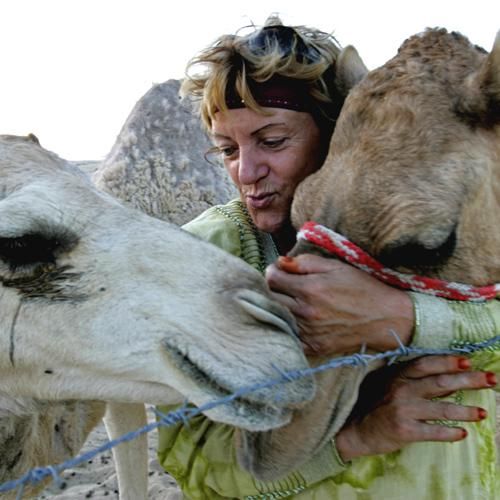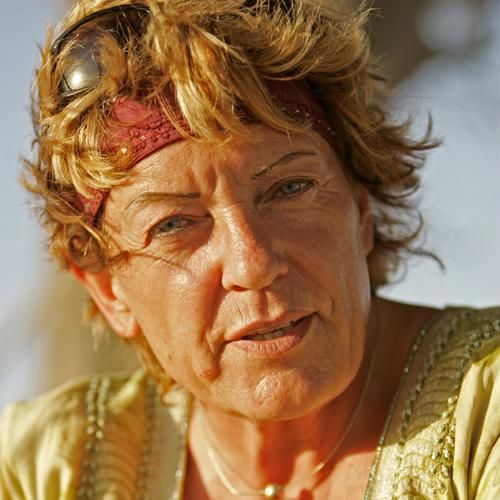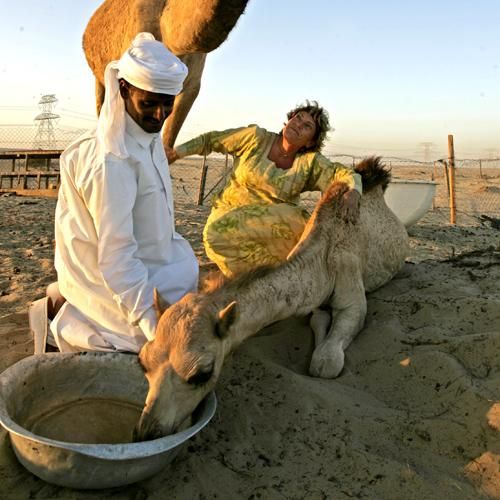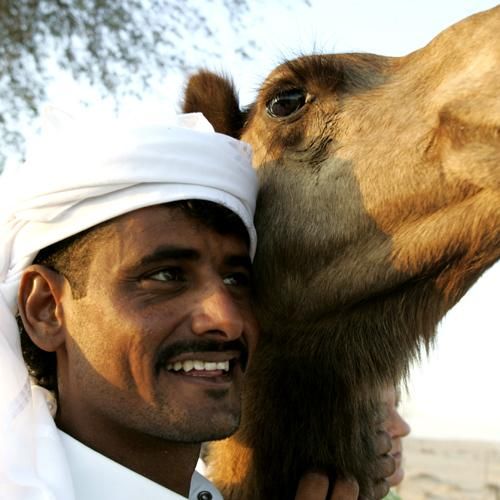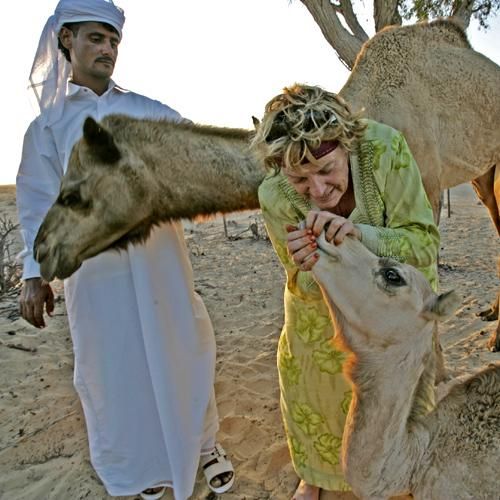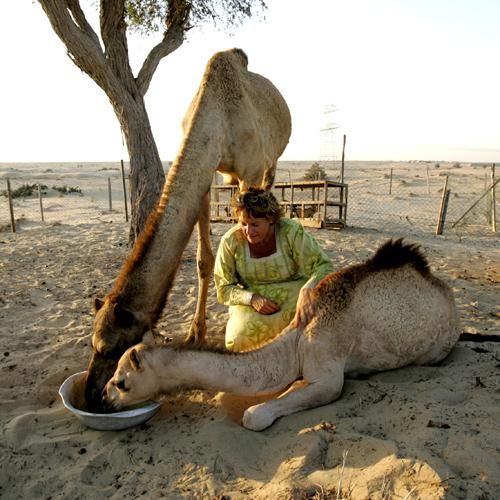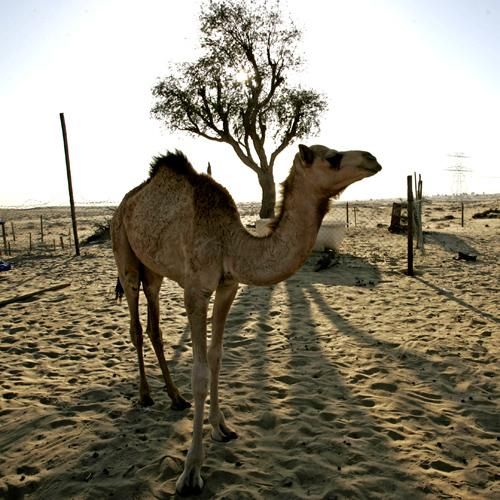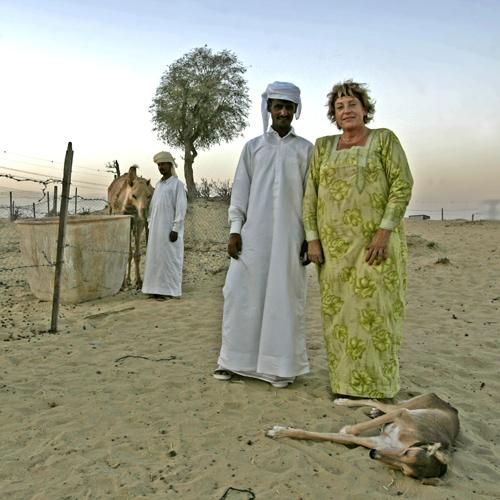As the evening sun settles into the horizon, Saffron the camel enjoys a Marlboro cigarette. Taking a deep breath of smoke, he lifts his giant head into the air and bares his teeth in pleasure.
Though he's a casual smoker with a penchant for Pepsi, this fat, furry and happy animal also enjoys long walks and hearty meals of oats and hay.
Then there's Alanout - a woman scorned. Having been mistreated by men years before, she's developed a nasty little habit of spitting at the opposite sex. Still, she's the favourite amongst the beasts.
“I've known Alanout since she was a baby and I always used to come to the stables to visit her,'' said her owner Ursula Musch.
“Once a camel wanted to kick me and Alanout came between us and saved me. Nothing comes between us.''
In her strong German accent, wearing a light green jalabeya, Musch proudly shows off six of her camels – she has four more at another farm – a donkey, goats, chicken and a hyperactive Saluki dog.
Settled on a plot of land owned by an Emirati friend, Musch's camel farm sits just a few kilometres behind Dubai Autodrome. There, she visits her animals up to twice a day, and has her companion Ahmad, his brother Alood and cousin Saleh help care for the creatures.
The camp is small but cosy, with freshly roasted coffee infused with cardamom, ginger and cinnamon flowing freely.
“I arrived in the UAE by chance when I went to the travel agency and asked them to send me somewhere with lots of sun and no Germans. Everything here was so strange, but it was a lovely country and I kept coming back here three or four times a year until I moved 14 years ago,'' said Musch.
Somewhere in her late forties or early fifties, she's a rarity amongst expats. Living along with Bedouin in the old village of Al Quoz, she speaks Arabic, has a Bedouin boyfriend, and is a respected friend of the Bedouin community.
“I go everywhere with them and I'm always in the desert,'' she said.
Though Musch rarely returns to Germany, she still retains business ties.
Making a round of visits to each of the pens, Musch shows off baby camel Lulu, lying comfortably near her mother.
Musch gets in between both, hugging them like children as they become vocal about the photographer's camera disrupting their rhythm.
“The camels can travel up to 20km a day but always return home for their food. My older camel, Habibi, has a habit of going home to the farm where he came from,'' she said.
Another camel, Negmeh, has lost much of her hair to a chomping camel from another farm.
“They all have very unique personalities and a great memory,'' said Musch.
But though she gains much of her happiness from her creatures and way of xlife, the lifestyle is rapidly changing.
“Behind this new Dubai that's being built, there's a traditional way of life that exists.''
Revenge of the camel
Healthy camels have a good memory and will seek revenge on those that have wronged them. Ahmad tells a story of a camel that was beaten very badly by his owner.
Later on it was raining so the man decided to sleep under the camel's belly. The angry camel collapsed onto the man with the calloused section of his belly. The man died instantly.
The Rashidi tribe
Ahmad, Alood and Saleh are Bedouin from the Rashidi tribe of Saudi Arabia. The tribe is known for training race camels and the three men currently work at Nad Al Sheba, shaping up camels for the big races.


